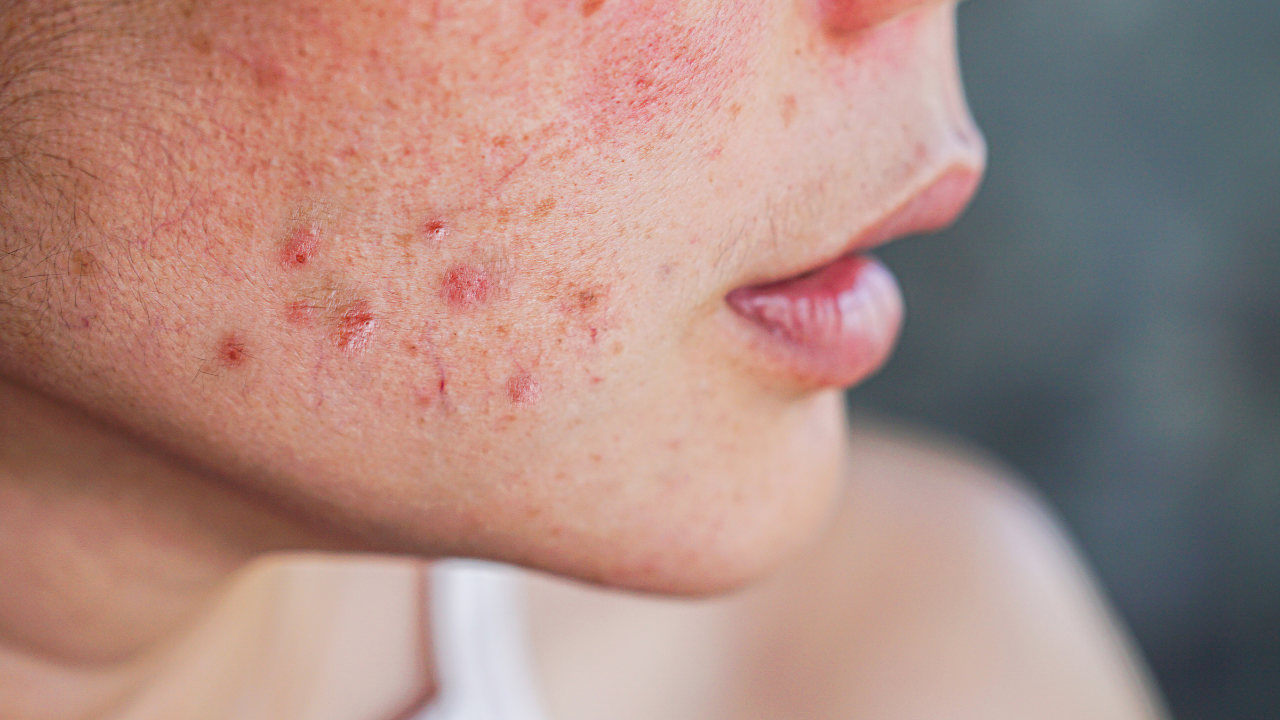Sensitive skin is a fairly common problem, and knowing whether you have this type of skin is essential to adapting your skincare routine. However, it can be difficult to know whether your skin is really sensitive or simply being attacked by environmental factors or the products you use. In this article, we’ll show you 5 tips for recognizing sensitive skin.
1. Observe your skin’s reactions

The first indicator ofsensitive skin is its tendency to react frequently. These reactions can take the form of redness, itching, tightness or even burning after the use of certain cosmetic products or exposure to external elements (cold, wind, sun, etc.). If you often experience these problems, it’s highly likely that you have sensitive skin.
Redness
Redness is generally caused by superficial vasodilation of blood vessels, which become more visible. Tightening pores can help reduce redness, but the best solution is to find out what’s causing the problem and adapt your skincare routine accordingly.
Itching and irritation
Constant discomfort and itching can be a sign of sensitive skin. Your epidermis is irritated and reacts to the slightest aggression, whether mechanical (friction) or chemical (unsuitable or allergenic cosmetics).
2. Test specific products for sensitive skin
There are many products specially formulated for sensitive skin, with gentle, soothing ingredients to prevent skin reactions. If you notice a marked improvement in the appearance and comfort of your skin after using these products, it may indicate that you have sensitive skin.
- Choose simple formulas, without fragrance, alcohol or other irritants.
- Look out for labels that guarantee the tolerance of products for sensitive skin.
3. Examine your beauty routine
Certain habits and products in your daily beauty routine can aggravate or cause sensitive skin. Here are a few points to consider:
- Cleansing: opt for a gentle, effective cleanser rather than an overly aggressive product that may strip your skin barrier and accentuate sensitivity problems.
- Exfoliants: opt for an enzymatic or very fine-grain exfoliator, to be used once a week, rather than overly abrasive or acid-based exfoliants.
- Daily care: make sure you use a moisturizing cream adapted to your skin type, which will reinforce the cutaneous barrier and provide comfort throughout the day.
4. Investigate irritating ingredients
Certain ingredients can be particularly irritating for sensitive skin. By learning about these substances and investigating their presence in your cosmetics, you can identify the culprits likely to cause skin reactions. The main irritating ingredients are
- Synthetic fragrances: these are very common in cosmetic products and can cause allergies or irritation.
- Alcohol: dries out the skin and can weaken the epidermis’ protective barrier. It is therefore preferable to choose alcohol-free products for sensitive skin.
- Surfactants: found in facial cleansers in particular, these can alter the hydrolipidic barrier. Opt instead for gentle cleansers with a cleansing base that respects the skin’s balance.
5. Pay attention to environmental conditions
The environment plays an important role in skin behavior. Here are a few factors to watch out for if you suspect you have sensitive skin:
Climate
Variations in temperature, humidity and extreme weather conditions (cold, wind, heat) can attack the skin and make it more sensitive. So be sure to adapt your skin care and protection to the weather.
Tap water
Water quality can influence the condition of your skin. Water that is too hard can irritate and dry out the epidermis. If you notice this problem, it may be beneficial to use a thermal spring water or cleansing milk to limit contact with tap water.
Stress and sleep
A stressful lifestyle and lack of sleep can have a negative impact on the health of your skin, making it more sensitive and reactive. Taking care of your skin also requires a healthy lifestyle: try to get enough sleep and keep your stress levels under control.
Finally, if you have identified your skin type as sensitive, don’t hesitate to consult a dermatologist, who can give you personalized advice on how to care for your skin in an effective and appropriate way.

I’m a young man studying in the field of health and sexuality. Passionate and committed, I am known for my dedication to my studies and my desire to make a significant contribution to society.
I am particularly interested in issues of consent and prevention in the field of sexual health, a subject that I feel is crucially important and often neglected. Those who know me well describe me as an empathetic person with an incredible ability to understand and support people in need.
I strive to demystify preconceived ideas about sexuality and improve attitudes and perceptions around sexual health. I’m a passionate advocate of the importance of sex education and consent education in universities, recognising the major transition students are going through in terms of their love and sex lives during their studies.
With a keen eye on society, I am particularly concerned about the problems of forced or unwanted sexuality among students, which I find unacceptable. I plan to devote my career to changing these disturbing statistics, by creating training and intervention programmes to improve knowledge, attitudes and behaviour relating to sexuality among young people.
My ultimate goal is to create an environment where every individual has the power to make informed choices about their sexual health, and where respect and consent are the norm. Overall, I am a character who represents commitment, compassion and the desire to make a difference in the world.
